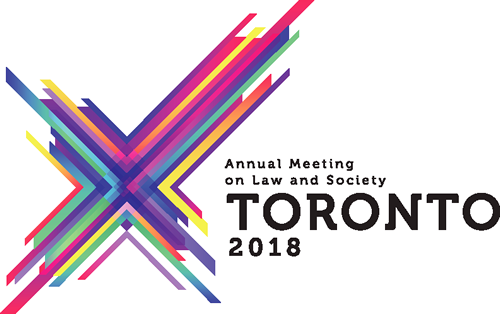In this month’s blog post, John Bliss of Harvard University’s Center on the Legal Profession summarizes the multitude of presentations on legal education that occurred in Toronto at the joint meetings of the U.S. Law and Society Association and the Canadian Law and Society Association. Bliss is joining Swethaa Ballakrishnen and David Sandomierski in working to organize a Collaborative Research Network on Legal Education Research.
***
Empirical research on legal education was well represented at this year’s LSA conference in Toronto. In total, I counted eleven sessions at the conference with a substantial focus on legal education. This breadth of presentations and the enthusiastic audience participation throughout was a successful proof of concept for the legal education CRN, which has been proposed by Swethaa Ballakrishnen, David Sandomierski, and myself (application currently under review with LSA).
In the first session of the conference, David Sandomierski chaired a roundtable on foundational questions in legal education. The speakers offered three hypothetical emails from troubled law students. This approach generated a fascinating discussion about legal pedagogy, student advising, and the purpose of law school. In the next hour, I moderated a paper session organized by the New Legal Realism CRN, “Legal Education and the Legal Profession in Empirical/Realist perspectives.” This panel included Australian, French, U.S., Canadian, and transnational perspectives. In a separate panel at the same time (we need to coordinate via a CRN!), Carole Silver and Swethaa Ballakrishnen presented a paper on the pathways and preferences of international students in U.S. law schools. At the end of the first day, Swethaa Ballakrishnen chaired an extraordinarily participatory roundtable on global legal education, with Bryant Garth and Carole Silver providing initial comments. On the second day of the conference, I chaired an author-meets-reader session for Diana Pan’s new book on racialization in law school with Debra Schleef, Meera Deo and David Wilkins as readers. The tremendous expertise in the room led to a great discussion and celebration of the book.
In addition to sessions planned by the organizers of what we hope will be the legal education CRN, several other paper sessions focused on legal education, titled: “Legal Education,” “Law and Legal Education: From Empires to Silos,” and “High Costs and/of/in Teaching Law: Pedagogy and Reform in Today’s Legal Academy.” There was also a professional development panel on undergraduate legal studies and roundtables on public legal education and judicial education.

